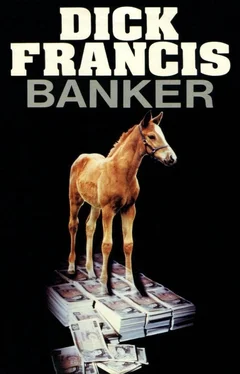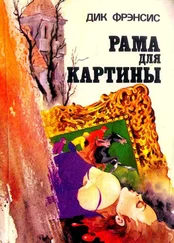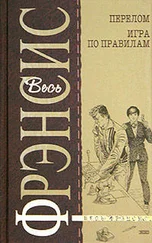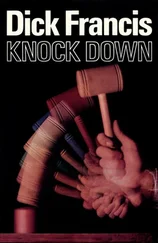‘You’ve lost me,’ I said.
‘So sorry. Well, laminitis is a condition of the feet where the bone eventually begins to crumble, and horses in the end can’t bear the pain of standing up. They lie down, and horses can’t live for more than a few days lying down.’ He spoke with regret. ‘And coryne,’ he went on, ‘is a frightful bacterial infection which is deadly to foals. It induces a sort of pneumonia with abcesses in the lungs. Terribly contagious. I know of one stud farm in America which lost seventy foals in one day.’
I listened in horror. ‘Do we have it in England?’ I asked.
‘Sometimes, in pockets, but not widespread. It doesn’t affect older horses. Foals of three months or over are safe.’ He paused. ‘Some very young foals do survive, of course, but they’re likely to have scar tissue in the lungs which may impair their breathing for racing purposes.’
‘Isn’t there a vaccine?’ I said.
He smiled indulgently. ‘Very little research is done into equine diseases, chiefly because of the cost but also because horses are so large, and can’t be kept in a laboratory for any controlled series of tests.’
I again had the impression that he had said all this many times before, but it was understandable and I was getting used to it. We proceeded on the hospital round (four-year-old with general debility, show-jumper with festering leg) and came at length to a box with an open door.
‘We’re giving this one sun treatment,’ Calder said, indicating that I should look; and inside the box a thin youth was adjusting the angle of an ultra-violet lamp set on a head-high, wall-mounted bracket. It wasn’t at the dappled grey that I looked, however, but at the lad, because in the first brief glimpse I thought he was the boy who had tried to attack Calder.
I opened my mouth... and shut it again.
He wasn’t the boy. He was of the same height, same build, same litheness, same general coloring, but not with the same eyes or jawline or narrow nose.
Calder saw my reaction and smiled. ‘For a split second, when I saw that boy move at Ascot, I thought it was Jason here. But it wasn’t, of course.’
I shook my head. ‘Alike but different.’
Calder nodded. ‘And Jason wouldn’t want to kill me, would you, Jason?’ He spoke with a jocularity to which Jason didn’t: respond.
‘No, sir,’ he said stolidly.
‘Jason is my right-hand man,’ said Calder heartily. ‘Indispensable.’
The right-hand man showed no satisfaction at the flattery and maintained an impassive countenance throughout. He touched the grey horse and told it to shift over a bit in the manner of one equal talking to another, and the horse obediently shifted.
‘Mind your eyes with that lamp,’ Calder said. ‘Where are your glasses?’
Jason fished into the breast pocket of his shirt and produced some ultra-dark sun-shades. Calder nodded. ‘Put them on,’ he said, and Jason complied. Where before there had already been a lack of mobility of expression, there was now, with the obscured eyes, no way at all of guessing Jason’s thoughts.
‘I’ll be finished with this one in ten minutes,’ he said. ‘Is there anything else after that, sir?’
Calder briefly pondered and shook his head. ‘Just the evening rounds at four.’
‘Your invalids get every care,’ I said, complimenting them.
Jason’s blacked-out eyes turned my way, but it was Calder who said ‘Hard work gets results.’ And you’ve said that a thousand times, I thought.
We reached the last box in the yard, the first one which was empty.
‘Emergency bed,’ Calder said, jokingly, and I smiled and asked how much he charged for his patients.
He replied easily and without explanation or apology. ‘Twice the training fees currently charged for horses in the top Newmarket stables. When their rates go up, so do mine.’
‘ Twice ...?’
He nodded. ‘I could charge more, you know. But if I charged less I’d be totally swamped by all those “last resort” people, and I simply haven’t the room or the time or the spiritual resources to take more cases than I do.’
I wondered how one would ever get to the essence of the man behind the temperate, considerate public face, or indeed if the public face was not a façade at all but the essence itself. I looked at the physical strength of the shoulders below the helmet head and listened to the plain words describing a mystical force, considered the dominating voice and the mild manner, and still found him a man to admire rather than like.
‘The surgery,’ he said, gesturing towards it as we walked that way. ‘My drug store!’ He smiled at the joke (how often, I wondered, had he said it?) and produced a key to unlock the door. ‘There’s nothing dangerous or illegal in here, of course, but one has to protect against vandals. So sad, don’t you think?’
The surgery, which had no windows, was basically a large brick-built hut. The internal walls, like the outer, were painted white, and the floor was tiled in red. There were antiseptic-looking glass-fronted cabinets along the two end walls and a wide bench with drawers underneath along the wall facing the door. On the bench, a delicate-looking set of scales, a pestle and mortar and a pair of fine rubber gloves: behind the glass of the cabinets, rows of bottles and boxes. Everything very business-like and tidy: and along the wall which contained the doer stood three kitchen appliances, refrigerator, cooker and sink.
Calder pointed vaguely towards the cabinets. ‘In there I keep the herbs in pill and powder form. Comfrey, myrrh, sarsaparilla, golden seal, fo-ti-tieng, things like that.’
‘Er...‘I said. ‘What do they do?’
He ran through them obligingly. ‘Comfrey knits bones, and heals wounds, myrrh is antiseptic and good for diarrhoea and rheumatism, sarsaparilla contains male hormones and increases physical strength, golden seal cures eczema, improves appetite and digestion, fo-ti-tieng is a revitalising tonic second to none. Then there’s liquorice for coughs and papaya enzymes for digesting proteins and passiflora to use as a general pacifier and tranquilliser.’ He paused. ‘There’s ginseng also, of course, which is a marvellous rejuvenator and invigorator, but it’s really too expensive in the quantities needed to do a horse significant good. It has to be taken continuously, for ever.’ He sighed. ‘Excellent for humans, though.’
The air in the windowless room was fresh and smelled very faintly fragrant, and as if to account for it Calder started showing me the contents of the drawers.
‘I keep seeds in here,’ he said. ‘My patients eat them by the handful every day.’ Three or four of the drawers contained large opaque plastic bags fastened by bull-dog clips. ‘Sunflower seeds for vitamins, phosphorus and calcium, good for bones and teeth. Pumpkin seeds for vigour — they contain male hormones — and also for phosphorus and iron. Carrot seeds for calming nervous horses. Sesame seeds for general health.’
He walked along a yard or two and pulled open an extra-large deep drawer which contained larger bags; more like sacks. ‘These are hops left after beer-making. They’re packed full of all good things. A great tonic, and cheap enough to use in quantity. We have bagfuls of them over in the feed shed to grind up as chaff but I use these here as one ingredient of my special decoction, my concentrated tonic’
‘Do you make it... on the stove?’ I asked.
He smiled. ‘Like a chef.’ He opened the refrigerator door. ‘I store it in here. Want to see?’
I looked inside. Nearly the whole space was taken with gallon-sized plastic containers full of brownish liquid. ‘We mix it in a bran mash, warmed of course, and the horses thrive.’
Читать дальше




